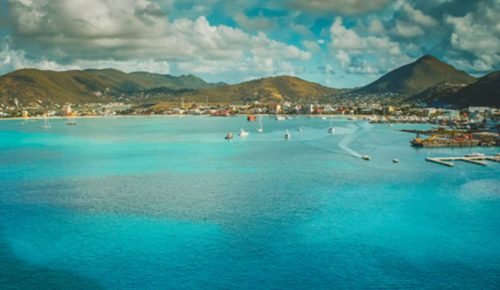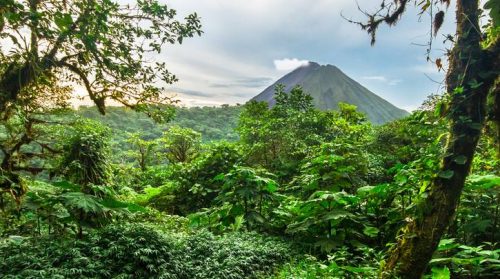Riyadh, Kingdom of Saudi Arabia, October 10, 2020 / TRAVELINDEX / In a historic first, G20 Tourism Ministers hosted more than 45 CEOs and Members of WTTC, who presented their plan to save the embattled Travel & Tourism sector and 100m jobs globally.
During their G20 Chairmanship of the Tourism Track, Saudi Arabia requested the collaboration of the global travel and tourism sector on developing insights to help accelerate the global recovery. As a result, the WTTC presented a plan which aims to restart international Travel & Tourism and recover 100 million jobs globally.
• Read all the latest WTTC News and Press Releases here.
The private sector event was opened by HE Ahmed Al Khateeb, Saudi Arabia’s Minister of Tourism and Chair of the G20 Tourism Track and WTTC President & CEO, Gloria Guevara to set the scene.
This was followed by a keynote from Chris Nassetta, President & CEO of Hilton and WTTC Chair and contributions from CEOs and Ministers representing all regions of the world, including Argentina, UK, UAE, Singapore and Spain, who joined the private sector with a unified voice to agree that through joint collaboration, the recovery of Travel & Tourism can be accelerated.
The CEOs used the historic forum to outline what they believe could be a game changing new 24-point plan that would save the struggling sector.
According to WTTC’s economic modelling, around 100 million jobs could be saved through strong international collaboration, eliminating travel barriers and an international testing protocol at departure, amongst others.
Gloria Guevara, WTTC President & CEO, said: “This historic meeting provided the best platform to establish public and private collaboration which will lead to rebuilding a sector which has been devastated by the pandemic.
“On behalf of WTTC and the private sector globally, I would like to thank and recognise the Minister of Tourism of Saudi Arabia for his leadership, as well as the G20 Tourism Ministers for their collaboration to recover millions of jobs and livelihoods through the resumption of international travel in a safe and effective way.
“The nature of this meeting cannot be underestimated; it is the first time so many Travel & Tourism CEOs and leaders have been invited to sit in the same forum as G20 Tourism Ministers to establish a tangible plan to save the Travel & Tourism sector.
“This plan will have far reaching consequences; it will bring real and genuine benefits to the industry as a whole – from aviation to tour operators, taxis to hotels and beyond.
“We are also delighted that the Seamless Traveller Journey, which has been a strategic priority for WTTC, and will further enable a safe return to international travel, has been warmly embraced by the participants at today’s historic meeting.”
His Excellency Ahmed Al Khateeb, Saudi Arabia’s Minister for Tourism and Chair of the G20 Tourism Ministers’ Meeting welcomed the initiative saying, “On behalf of the G20 Tourism Ministers, I commend the World Travel & Tourism Council and the global travel and tourism sector for their efforts to put people first during the global pandemic, by collaborating at the industry-level and with the public sector to put in place concrete actions that will protect millions of jobs and livelihoods, while ensuring that the sector is more resilient to crises in the future.”
Among the CEOs from the global private sector invited by Saudi Arabia were, Arnold Donald, Carnival Corporation; Keith Barr, InterContinental Hotels Group; Alex Cruz, British Airways; Jerry Inzerillo, DGDA; Kurt Ekert, Carlson Wagonlit Travel; Greg O’Hara, Certares; Paul Griffiths, Dubai Airports; Puneet Chatwal, Indian Hotel Company; Tadashi Fujita, Japan Airlines; Gabriel Escarrer, Melia; Pierfrancesco Vago, MSC Cruises; Jane Sun, Trip-com; Friedrich Joussen, TUI; Federico J. González, Radisson Hotel Group; Manfredi Lefebvre, Abercrombie & Kent; Alex Zozaya, Apple Leisure Group; Jeff Rutledge, American International Group; Adnan Kazim, Emirates Group; Darrell Wade, Intrepid; Brett Tollman, The Travel Corporation; Ariane Gorin, Expedia; Mark Hoplamazian, Hyatt; Vivian Zhou, Jin Jang Int. Group; Johny Zakhem, Accor; Heike Birlenbach, Deutsche Lufthansa AG; Ayhan Bektaş, OTI Holding; Geoffrey J.W. Kent, Abercrombie & Kent; Gustavo Lipovich, Aerolineas Argentinas; Leonel Andrade, CVC; Jack Kumada, JTB; Roberto Alvo, LATAM Airlines Group; Vikram Oberoi, The Oberoi Group; Craig Smith, Marriott; Shirley Tan, Rajawali Property Group; Budi Tirtawisata, Panorama Tours; Gibran Chapur, Palace Hotels; Bander Al-Mohanna, Flynas; Nicholas Naples, Amaala; Ali Al-Rakban, Aqalat; Dr Mansoor Al-Mansoor, Riyadh Airport; Amr AlMadani, Royal Commission Al Ula; Nabeel Al-Jama, Aramco; Andrew McEvoy, NEOM; John Pagano, The Red Sea Development Company; Ibrahim Alkoshy, Saudia; Abdullah Al Dawood, Seera Group; Talal Bin Ibrahim Al Maiman, Kingdom Holding; Fettah Tamince, Rixos; Hussain Sajwani, DAMAC; Tran Doan-a The Duy, Vietravel; Joseph Birori, Primate Safaries.
Alexandre de Juniac, Director General, IATA, Fang Liu, Secretary General, ICAO, were also added their voice to testing being the solution to eliminate quarantines. Zurab Pololikashvili, Secretary General of UNWTO also contributed to the debate.
Alexandre de Juniac, IATA’s Director General and CEO said, “It is critical that governments and industry work together to safely re-open borders with systematic COVID-19 testing. Some 46 million jobs are at risk. The historic participation of industry in this G20 Summit is a good start to the government-industry partnership that will be needed to revive the travel and tourism economy on which 10% of global GDP depends.”
Dr. Fang Liu, Secretary General of ICAO said, “Governments and industry have been working hard through ICAO to develop and align effective pandemic COVID-19 responses in air transport, and to reconnect the world of travel and tourism. Hundreds of millions of people and businesses all over the world are depending on these efforts, and this WTTC event provided an invaluable opportunity to underscore these points to G20 private and public sector leaders.”
At the request of Saudi Arabia, WTTC presented the recovery plan which includes twelve points for the private sector and twelve for the public sector, focusing on measures to reactivate international travel.
The unprecedented plan was pulled together with input from WTTC Members and covered a wide range of initiatives which hinged on securing international coordination to re-establish effective operations and resume international travel, including the implementation of an international testing regime at departure to minimize the risk of spreading COVID-19.
Chris Nassetta, WTTC Chairman and Hilton President and CEO said, “WTTC’s private sector action plan is hugely important in supporting the recovery of the sector and bringing back 100 million travel and tourism jobs globally.”
“It will take significant collaboration between the public and private sectors to ensure a full recovery and rebuild traveler confidence, which is why today’s G20 meeting was so important. I’m encouraged by the progress we’re seeing around the world and look forward to the continued collective efforts to support our stakeholders and promote the incredible impact our industry creates for communities globally.”
Alex Cruz, Chairman and Chief Executive of British Airways said: “Be in no doubt; Covid-19 has led to the worst crisis in the history of commercial global aviation. To ensure the industry’s survival we are calling for a common global approach to testing and the creation of regional air corridors so that we can get more flights back in the air, and the global economy moving, as soon as possible. Governments must act fast and work together before it’s too late.”
Keith Barr, CEO, InterContinental Hotels Group (IHG): “The travel and tourism industry plays a critical role in the global economy and in communities all over the world. The pace and strength at which a recovery can be supported is therefore of great importance. Collaboration between government and industry is absolutely key to this and I am incredibly encouraged by the level of partnership and commitment we’ve seen at this historic G20 meeting.”
Arnold Donald, President & CEO of Carnival Corporation and North American Vice-Chair said, “It was an honour to have the opportunity to speak at this important event. The travel and tourism sector has been a major driver in global economic growth over the last 5 years and it is imperative that we all work together to restart international travel in a safe and efficient manner.”
Federico J González, CEO of Radisson Hospitality said “We cannot underestimate the power of the public and private sector coming together to support each other and helping rebuild the hospitality industry. We recognised this importance earlier this year, and played a leading role in the development of the World Travel and Tourism (WTTC)’s “Safe Travels” protocols, a global hospitality framework for a safe return to business. Today, more so than ever, we need to make sure that the travel industry, public sector, and private sector have a common global understanding and plan in place to ensure and protect the safety of travellers, partners, and team members while our industry continues to recover, rebuild, and reopen its doors.”
Gabriel Escarrer, Executive-Chairman and CEO of Meliá Hotels International said, “At this crossroads in history for the global travel industry, when it is more important than ever that we all think and act together, countries must agree on common criteria and indicators to allow the tourism flows, whilst ensuring the maximum level of health security.”
“Within the WTTC we are all aligned and speak with one voice, ready to move forward together towards the reopening of borders as the first step in the sustainable recovery of travel.”
Jane Sun, Chief Executive Officer and Director of Trip Group said, “Travel is a resilient industry, and a fundamental part of so many of our lives. I am delighted that everyone is coming together to not only discuss about the industry but to also share our passion for travel. The current trends we’ve observed in the China market are encouraging, and we are confident that coupled with the guarantees, measures and innovations we’ve introduced, we’ll continue to see promising growth and new heights for the industry in the near future.”
Paul Griffiths, CEO of Dubai Airports said, “This loss of mobility has devastated the travel and tourism sector worldwide. Governments across the globe are looking to the aviation industry for a solution that minimises the risk of infection whilst getting the world’s people – and its economies – moving again.
“There are three essential steps required to create this outcome. A common testing procedure that is quick, accurate and easy to administer, a unified approach to testing, isolation and protection protocol and the establishment of bilateral agreements between countries, agreeing to adopt these measures. We need to act now to make travel safe again.”
Greg O’Hara, Founder and Managing Partner of Certares “In the midst of one of the greatest challenges that our global economy and society has ever faced, I’m heartened that governments around the world are taking a particular interest in our sector. Our sector is uniquely important to both economic productivity and personal wellbeing and we are suffering disproportionately.
“There are many data points thus far that should serve to encourage people to return to life and travel as we knew it. We need global governments’ assistance to re-install traveler confidence by communicating information clearly and objectively.”
Pierfrancesco Vago, Executive Chairman MSC Cruises said, “This meeting presented a unique opportunity to share our collective experiences and knowledge about how we can work together to restart Tourism in a safe and healthy manner. I hope that the data and learnings from the restarting of our cruise operations that I shared can help achieve harmonisation across the broader Sector.”
Jerry Inzerillo, Diriyah Gate Development Authority CEO, said, “Tourism has become one of the world’s most important economic contributors, creating one in 10 jobs globally.
“We have a huge and privileged responsibility as tourism industry stakeholders to come together and collaborate during a time of such important need – for we are stronger as a united voice, and industry job recovery will be aided more quickly with an approach that is both consistent and united internationally.
“Being part of this historic event, as the Kingdom of Saudi Arabia hosts the G20 Presidency for the first time, has been a true honour, and we look forward to spearheading continued public-private sector partnerships to ensure an accelerated recovery and a fast and safe resumption of international travel.
“I’d like to profoundly thank both HRH The Crown Prince Mohammed Bin Salman and the Minister of Tourism His Excellency Ahmed Al Khateeb, for their constant, consistent leadership, and for providing the resources to promote Saudi Arabia and global tourism. Thank you to Gloria Guevara and WTTC for this extraordinary initiative and for the opportunity to be part of the 100 million jobs recovery plan.”
Tadashi Fujita, Representative Director, Executive President of Japan Airlines said, “I am deeply grateful to have attended such an influential conference and have the opportunity to work together towards the global recovery post-COVID. What is required of us now is to provide a safe and secure travel experience and to realize a society in which travelers and residents can coexist with peace of mind. I would like to make an effort to realise these high ambitions together as a team.”
Roberto Alvo, CEO of LATAM Airlines Group said, “Coordinated and consistent measures advocated by the WTTC and in line with ICAO’s recommendations are essential for customer trust as well as the reactivation and recovery of aviation and tourism in South America. We will continue to collaborate with governments and industry partners to promote safe, easy to understand and affordable protocols that will help restore customer confidence and reactivate a sector that supports millions of jobs in the region.”
Mr. Puneet Chhatwal, MD and CEO of Indian Hotels Company Limited (Taj) said, “It was an honour to be part of the historic G20 Tourism Meeting. In India, travel and hospitality contributes 9.3 per cent to the overall Indian GDP and accounts for over 8 per cent of India’s total employment. It is therefore imperative to come together and focus on the revival of the sector across the globe with optimism, hope and unity in solidarity of the industry. “
WTTC has been at the forefront of leading the private sector in the drive to rebuild global consumer confidence and encourage the return of Safe Travels.
According to WTTC’s 2020 Economic Impact Report, shows how the Travel & Tourism sector will be critical to the recovery. It revealed that during 2019, Travel & Tourism was responsible for one in 10 jobs (330 million in total), making a 10.3% contribution to global GDP and generating one in four of all new jobs.
It is also one of the most diverse sectors in the world, employing people of all socio-economic levels, regardless of gender or ethnicity, employing 54% women and 30% young people.
View the plan.











